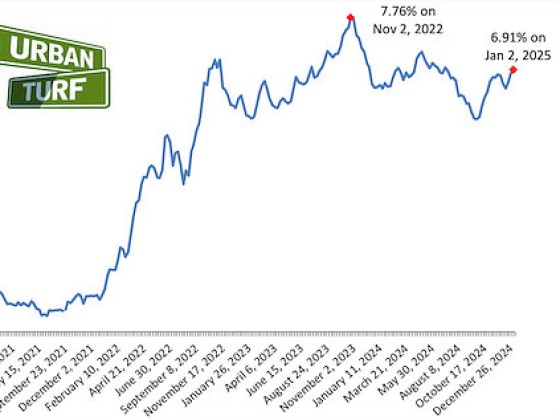 How Does The Mortgage Interest Deduction Work?
How Does The Mortgage Interest Deduction Work?
✉️ Want to forward this article? Click here.
The mortgage interest deduction allows homeowners who itemize their taxes to reduce their taxable income by the amount of interest paid on their mortgage within a tax year, thereby potentially lowering their overall tax bill. This article delves into the intricacies of the mortgage interest deduction, including eligibility, limitations, and practical considerations.
Eligibility Criteria
To qualify for the mortgage interest deduction, a taxpayer must meet specific criteria set forth by the Internal Revenue Service (IRS). Key eligibility requirements typically include:
story continues below
loading...story continues above
- The mortgage must be secured by the taxpayer's primary residence or a second home.
- The mortgage is taken out to buy, build, or substantially improve the taxpayer's home.
- The taxpayer must itemize deductions on their tax return, choosing this method over the standard deduction.
Types of Loans Covered
Several types of loans can qualify for the mortgage interest deduction, including:
- Primary mortgages: Interest paid on the main loan used to purchase or construct the home.
- Home equity loans: Interest on loans secured by the home, provided the funds are used to buy, build, or substantially improve the homeowner's property.
- Refinanced mortgages: Interest on a refinanced mortgage, with certain limitations depending on the loan's purpose and amount.
- Second mortgages: Additional loans secured by the home, with the same stipulations as primary and home equity loans.
Deduction Limits
The amount of mortgage interest that can be deducted is subject to limits. The deduction is currently capped at interest paid on the first $750,000 ($375,000 if married filing separately) of indebtedness for loans taken out after December 15, 2017. Loans existing before this date are grandfathered under the previous limit of $1 million ($500,000 if married filing separately).
How to Claim the Deduction
To claim the mortgage interest deduction, homeowners must:
- Itemize deductions: Taxpayers must choose to itemize deductions on their tax return, using Schedule A (Form 1040) or a similar form, depending on the tax authority's requirements.
- Gather documentation: Lenders typically send a Form 1098 (or a similar statement) to homeowners, detailing the amount of interest paid during the tax year.
- Calculate the deduction: Homeowners should calculate their deductible mortgage interest, considering the limits and ensuring they only deduct interest on qualifying loans.
The mortgage interest deduction offers a valuable tax benefit for many homeowners, but as with all tax matters, staying abreast of current laws and seeking professional advice when necessary is prudent.
See other articles related to: mortgage interest deduction
This article originally published at https://dc.urbanturf.com/articles/blog/how_does_the_mortgage_interest_deduction_work/22007.
Most Popular... This Week • Last 30 Days • Ever

The differences between condo fees and co-op fees might seem small, but there are som... read »

As mortgage rates have more than doubled from their historic lows over the last coupl... read »

International migration was the driving force behind the rise in DC's population.... read »

A report out today stated that there were nearly 3,900 home sales last month, a 26% y... read »

Last week, President Biden signed a bill into law that transfers the land that includ... read »
DC Real Estate Guides
Short guides to navigating the DC-area real estate market
We've collected all our helpful guides for buying, selling and renting in and around Washington, DC in one place. Start browsing below!
First-Timer Primers
Intro guides for first-time home buyers
Unique Spaces
Awesome and unusual real estate from across the DC Metro














